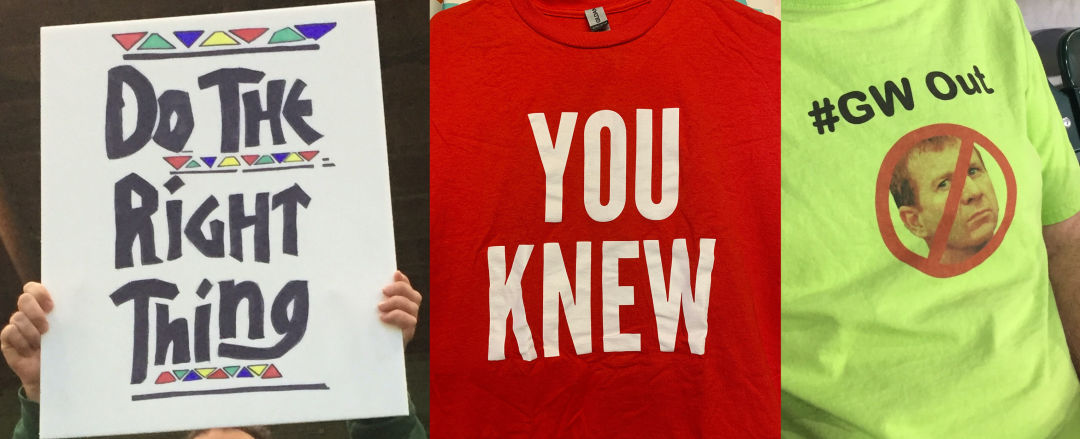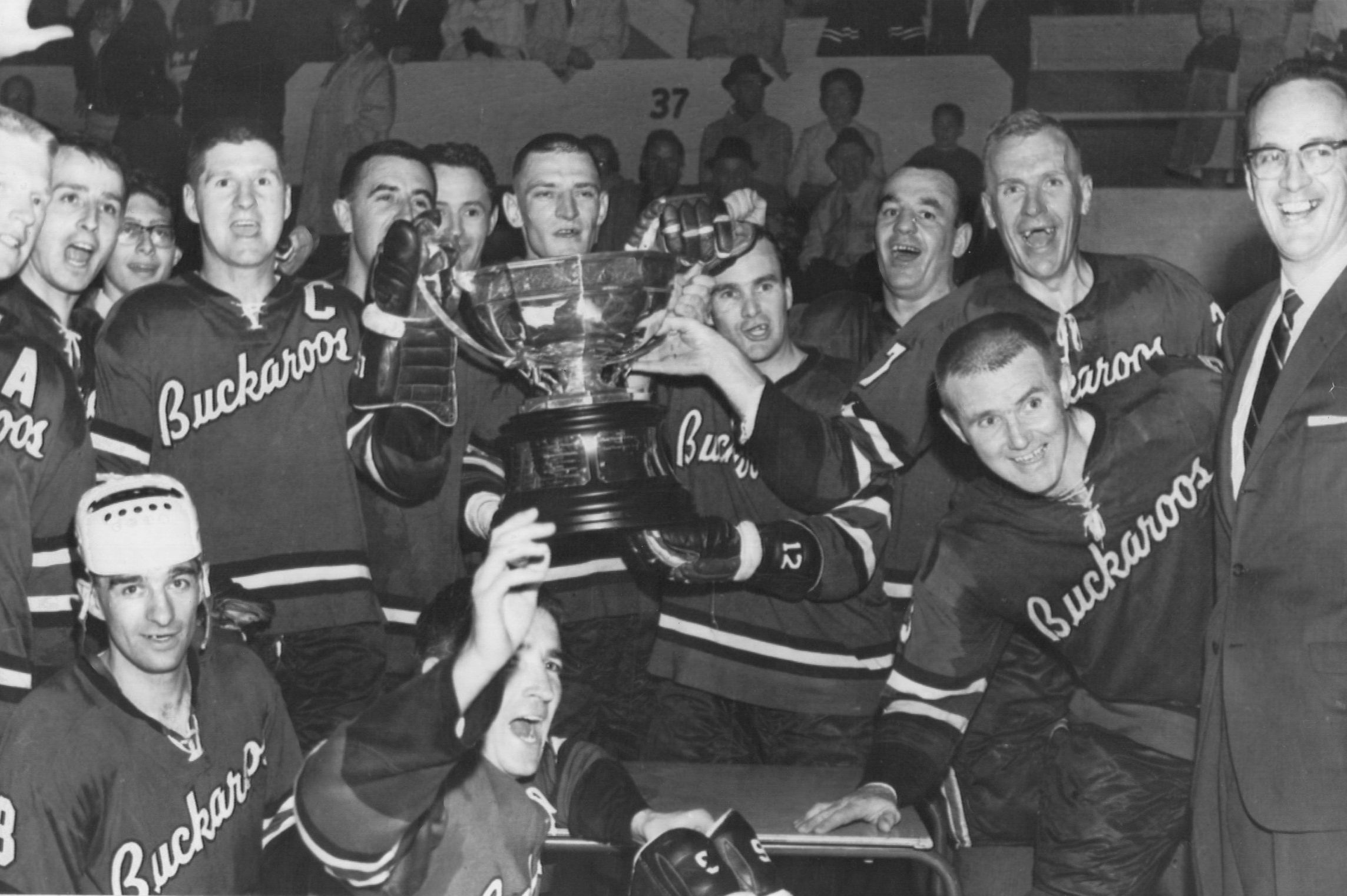The Sally Yates Report on ‘Systemic’ Abuses in Women’s Soccer Is Out. And It’s Bad.

Since reports of abuse by a former Thorns coach and allegations of a possible cover-up were first made public last fall, fans have brought (or worn) messages directed at team owners and executives.
Image: Margaret Seiler
Ahard-to-read, damning 319-page report released this week finds that player abuses within the National Women's Soccer League and the US Soccer Federation are "systemic"—and that the Portland Thorns organization and its leadership were deliberately uncooperative with independent investigators.
The report comes just over a year after a bombshell article detailed allegations by former Portland Thorns Meleana Shim and Sinead Farrelly about sexual harassment and coercion on the part of Paul Riley, the Thorns’ coach in 2014 and 2015, as well as the response (or lack of) from the team’s front office.
Retained two days after the September 30, 2021, article by Meg Linehan was published in the Athletic, former US Attorney and US Deputy Attorney General Sally Q. Yates and the law firm King & Spalding LLP were asked to conduct an independent investigation into the Riley situation and other alleged abuses in the National Women’s Soccer League. The yearlong investigation involved more than 200 interviews and 89,000 documents. About half of the report's pages are footnotes, sources, and appendices including many emails and text messages.
“Our investigation has revealed a league in which abuse and misconduct—verbal and emotional abuse and sexual misconduct—had become systemic, spanning multiple teams, coaches, and victims,” reads the executive summary.
Systemic, yes, but, in addition to Riley, some front-office names associated with the Portland Thorns have featured roles in the report: notably owner Merritt Paulson (who a year ago claimed to “disavow the culture of silence” and pledged to “welcome” and “fully cooperate” with an investigation) and former general manager Gavin Wilkinson (still the Timbers GM, he was temporarily relieved of his Thorns duties following the Athletic article but was reinstated as both teams' president of soccer in January 2022). The report notes that the Thorns and Timbers’ president of business Mike Golub (who was singled out in a recent internal review for inappropriate and discriminatory workplace behavior) was not “made available” for an interview. Yates’s team states that the Thorns caused delays in the investigation: “The Portland Thorns interfered with our access to relevant witnesses and raised specious legal arguments in an attempt to impede our use of relevant documents.”
Within hours of the report’s release, a group of protesters gathered outside of Providence Park chanting “Merritt Paulson protects abusers,” and the Oregonian website’s lead story was an op-ed by sports columnist Bill Oram calling on Paulson to fire Wilkinson and sell both the Timbers and the Thorns, citing Paulson’s “backroom bargaining to keep the allegations against Riley buried.”
At least one local sponsor of the Thorns, Laurelwood Brewing, has publicly addressed the report, releasing a statement on Instagram that the findings "do not reflect" its values and that it will "wait and see what happens with team ownership and management" before making a decision about continuing the sponsorship next season. Meanwhile, some Portlanders not normally thought of in connection to sports fandom—public radio donors—have called for the removal of Golub from the board of Oregon Public Broadcasting.
The answers to who knew what, when, appear to be everyone, and early. Yet little was done. Shim’s 2015 reports of Riley’s increasingly aggressive sexual harassment, eventual coercion, exertion of control, and retaliation led to his dismissal from the Thorns that fall, but publicly his contract was simply not renewed and the team wished him well: “the Thorns did not inform the team staff, the players, other NWSL teams, or the public of Riley’s termination for cause.”
A seven-page internal report, produced in the course of a week, included interviews with Shim and Farrelly but left out many details and presented the situation as a limited instance of inappropriate fraternization. It includes an assertion from Riley that his touching of Shim’s hips was akin to “dancing with his daughter at her wedding.” The report, such as it was, was shared with league leadership at the US Soccer Federation. (The NWSL was established by USSF in 2012, began play in 2013, and was under USSF management through 2020.)
Riley was hired four months later by another NWSL team, the Western New York Flash. The Yates report says the Flash “sought and received information and positive recommendations from the Thorns regarding Riley…. The WNY Flash also reported that Wilkinson ‘referenced only one incident with a disgruntled player but indicated that an internal investigation resulted in no findings of wrong doing [sic] against Mr. Riley and the investigation was otherwise closed. His comment at that time was to get him if we could.’”
Shim had forwarded her emailed complaints in September 2015 to the then-commissioner of the NWSL, Jeff Plush. According to the report, Plush told the Flash it was “his understanding that Gavin Wilkinson … told the Flash that Riley was ‘put in a bad position by the player,’ and that Wilkinson would ‘hire [Riley] in a heartbeat.’”
The Flash was sold and rebranded as the North Carolina Courage. The new management asked around about Riley, the report notes, but mostly heard that he could get testy with referees, as well as some drinking with players that Paulson called a mere case of “poor judgment.” According to the report, Paulson does not recall the conversation.
After Linehan’s story in the Athletic last fall detailing Shim’s accusations from 2015, “Player A, a player at the Courage who wishes to remain anonymous, reported experiences similar to Shim’s, beginning in 2017,” according to the report.
The report also details Riley’s criticizing players’ weight, mocking or questioning their sexuality, and even belittling them due to the low league salaries, as well as ignoring or contravening medical guidance from team training staff and the national federation: “The Head Athletic Trainer at the Thorns recalled speaking to Wilkinson several times in 2014 and 2015 and reporting to Wilkinson, ‘I have a coach who is endangering players.’ … Players and staff on both the Thorns and the Courage commented that the way Riley spoke about weight promoted eating disorders.”
Shim, Farrelly, and others raised concerns again with the NWSL and USSF in 2018 and early 2021, wondering why Riley was still coaching in the league. The usual response was that Portland had dealt with the issue at the time, and the case was closed. As the Courage won championships and Riley garnered accolades, the report says, “Executives at the Thorns and the Courage continued to privately endorse him and publicly praise Riley on social media.” Over the past year while the Yates investigation was underway, “The Portland Thorns vigorously attempted to prevent our investigation from using the 2015 Thorns Report—which had been in USSF’s possession since 2015—on the grounds that it was protected by attorney-client privilege and common-interest privilege, despite all evidence to the contrary.”
While Riley and the Thorns actions make up the longest section of the report, Shim and Farrelly’s allegations and their aftermath are not the only instances the Yates team investigated. There are sections on Christy Holly, fired for cause over sexual misconduct by Racing Louisville FC in August 2021, and Rory Dames, whose resignation from the Chicago Red Stars was announced under dark of night in November 2021 before abuse allegations surfaced. The report notes that these men were chosen not because they are the only alleged abusers but “to illustrate the gravity and breadth of the misconduct at issue and institutional failures that perpetuated it.”
The league’s failure to institute “the most basic of workplace protections” led “almost inevitably” to the “systemic abuse of players,” according to the report.
The report describes private handwringing but few public measures taken to protect players or hold perpetrators responsible. The tendency of alleged abusers to simply go work for a new team (before Louisville hired him, Holly had been fired by Sky Blue FC) recalls instances in the Catholic Church of abusive priests simply going to a different parish when people started asking questions: “Abusive coaches were able to move from team to team, and even to USSF, because the teams, the League, and USSF failed to identify misconduct and inform others when necessary.”
The report includes that many players sometimes “failed to recognize certain behaviors as abusive because they were so ubiquitous in women’s soccer” and calls out all levels of USSF, from youth programs to the national team.
“We got used to being called dumb, stupid, slow, idiotic, retarded,” a player says of Riley. Former players of Dames “recalled him screaming and calling them “cunts,” “fat ass,” “pussy,” “retarded,” and “bitches,’” according to the report. Former players in Dames’s Eclipse youth soccer program told investigators that a “sexualized team environment—in which he spoke to players about foreplay, oral sex, and their sex lives—crossed the line to sexual relationships in multiple cases, though those relationships may have begun after the age of consent.”
The report also states that the “few investigations that materialized often narrowly focused on whether a coach’s conduct was ‘unlawful,’ rather than whether it was abusive or even appropriate for a coach of professional women athletes. In addition, the investigations frequently minimized or siloed allegations rather than looking for patterns of misconduct…. In general, teams, the NWSL, and USSF appear to have prioritized concerns of legal exposure to litigation by coaches—and the risk of drawing negative attention to the team or League—over player safety and well-being.”




